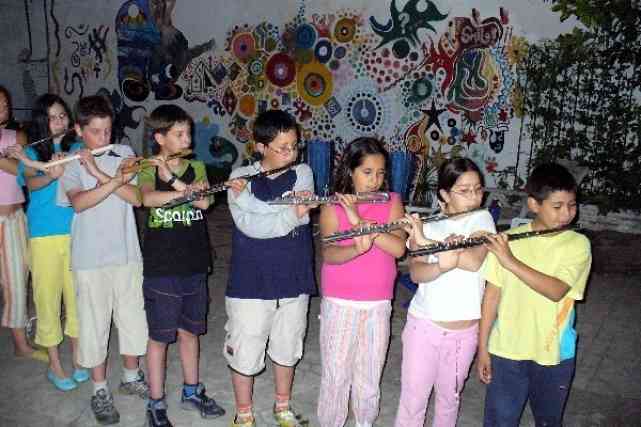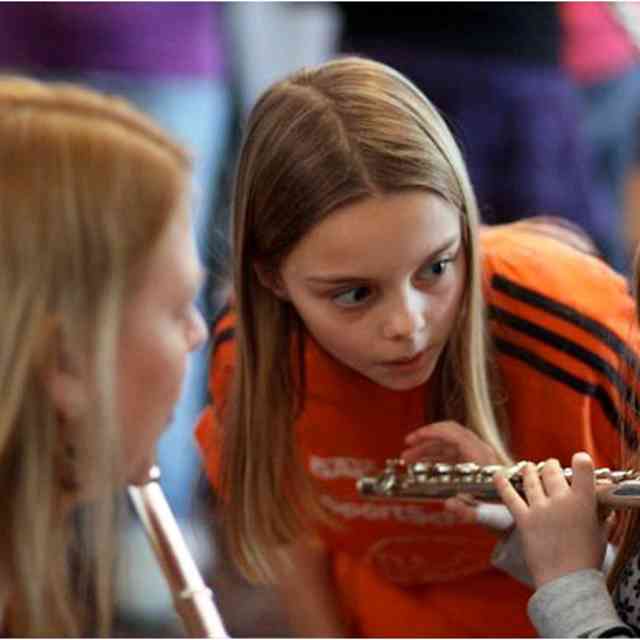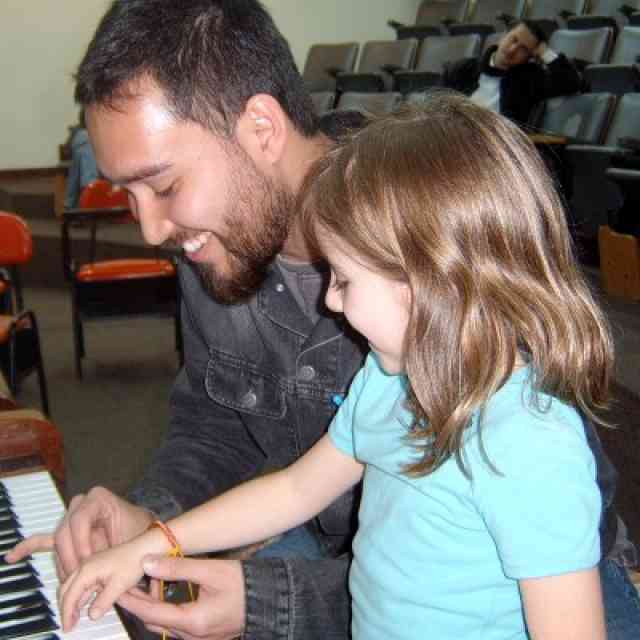
Arrival
Arrive early with time for unpacking and tuning and time to catch your breath! Help the class to start on time!
Behaviors
Loving, courteous and respectful behaviors are cultivated. We try to respect each other and others’ feelings.
Community
People working on common goals have a sense of belonging, and bonds are strengthened between them.
Discipline
Classes are enjoyable within a disciplined framework. Students learn to follow a leader and develop many cooperative skills.
Exhilaration
Contributing to a large group sound and accomplishing shared group goals are exhilarating activities. Group experience provides a showcase for skills!
Frequent performances
Frequent ensemble and solo performance opportunities build confidence and ease of playing.
Games
Games have a purpose! They teach techniques in fun ways and give students a chance to take a break.
Head to Heels
Group time is a chance for teachers to gently remind students to play with their best postures.
Interest in the child
If you spend a large block of time with your child, he/she can sense the importance you attach to these activities.
Joy
Work is joy. Participation gives a sense of accomplishment which is an important part of the happiness journey. Happiness is a journey, not a destination.
Keeping skills sharpened
Students should be well-reviewed before group classes. Then pieces can be worked on in a confident and challenging way.
Listening
Listening skills improve by listening to directions in class, learning audience listening manners and developing a heightened awareness of tone and musicality.
Motivation
A direct by-product of all of these points will be increased enthusiasm for playing the instrument.
New ideas
Teachers have new and different ideas which can be shared in a group setting and among themselves.
Observation
Observe each other’s postures and techniques, poise of recital soloists, more advanced players and the many interactions of parents, children and teachers.
Peer interaction
A group class spurs growth in a way that teachers and parents can’t.
Quick reflexes
Quick reaction to instructions. Mental agility. Quick reflex games.
Reinforcement
Reinforce, review and revise techniques and musical concepts learned in private lessons.
Socializing
Friendships are made between students and parents and teachers. Problems and successes can be shared in a relaxed and informal way.
Team work
Team competition instead of individual competition is recommended for group classes. The results of team efforts can be very rewarding.
Unison playing
Ensemble and unison playing offer various challenges and bring awareness of different combinations of sound.
Variety
Some teachers are high energy, some have a more relaxed style. Some are right brained, some left. Some sequential, some holistic. Children learn to adapt to their group teachers’ different styles.
Working on polishing pieces
After notes and bowings are learned, details of phrasing, intonation and musical ideas can be refined in a fun and challenging way.
eXpectations…
Vary from parent to parent and child to child. With a variety of faculty and classes, these can be met at different times and in different ways.
Yielding results
Yields of highest quality and quantity for our youth from group experiences!
Zest
Zest for music!








